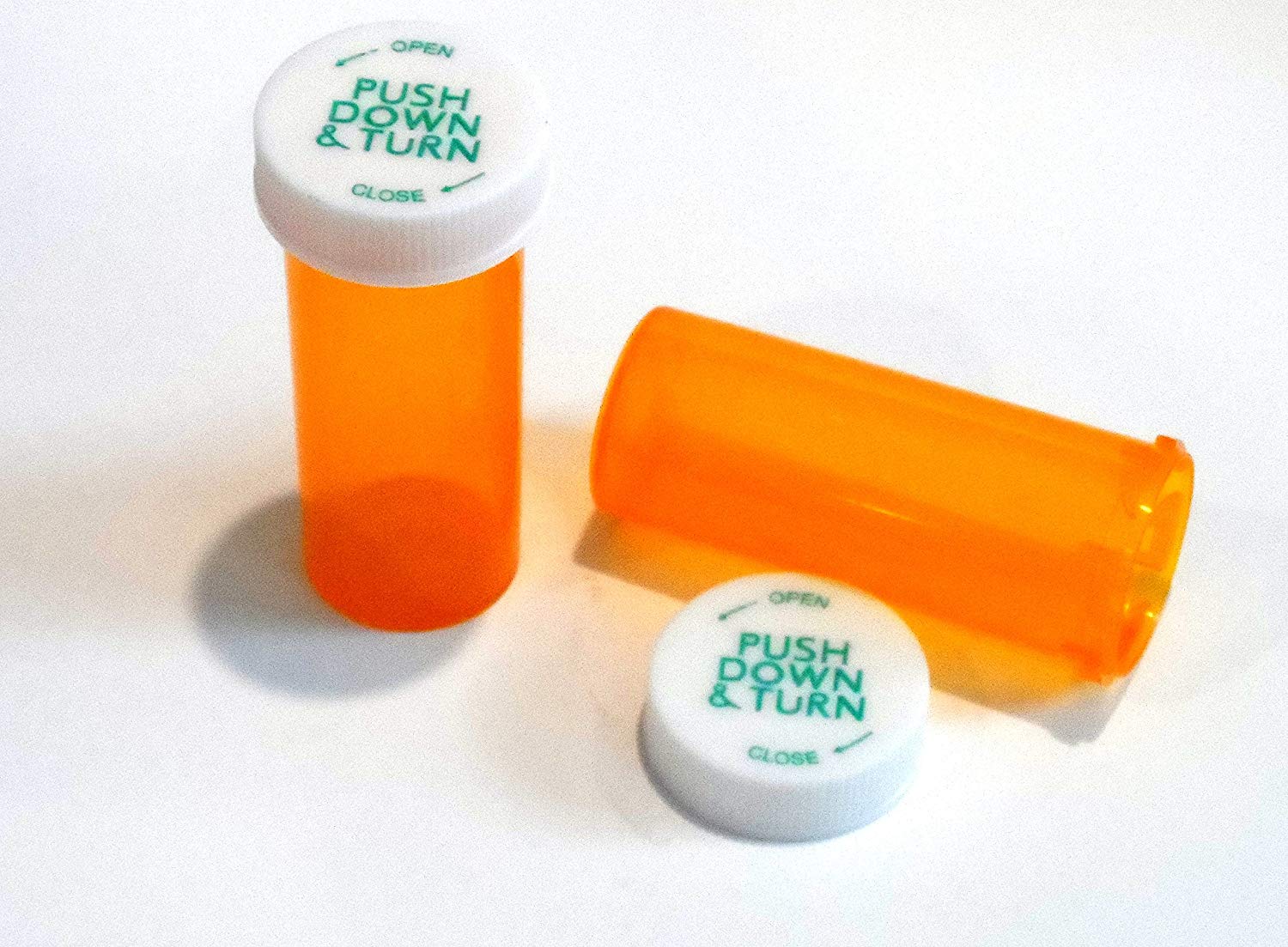

Articles
How To Store Medicine Bottles
Modified: March 2, 2024
Learn effective ways to store medicine bottles in this informative articles. Keep your medications organized and easily accessible for optimal health and safety.
(Many of the links in this article redirect to a specific reviewed product. Your purchase of these products through affiliate links helps to generate commission for Storables.com, at no extra cost. Learn more)
Introduction
Proper storage of medicine bottles is essential for maintaining their effectiveness and ensuring the safety of users. Whether you have a small first aid kit or a complete medicine cabinet, understanding how to store your medicine bottles correctly can make a significant difference in their overall quality and longevity. In this article, we will explore the importance of proper medicine storage, discuss the ideal storage conditions, provide tips for choosing the right storage location, offer guidance on organizing medicine bottles, highlight how to maintain proper medication storage, and discuss common mistakes to avoid.
Key Takeaways:
- Proper medicine storage is crucial for maintaining effectiveness, safety, and minimizing waste. Follow ideal storage conditions, organize bottles, and avoid common mistakes to optimize medication quality and safety.
- Choosing the right storage location, organizing medicine bottles, and maintaining proper medication storage are essential for optimizing the effectiveness and safety of your medications. Be mindful of common mistakes to ensure longevity and quality.
Importance of Proper Medicine Storage
Proper medicine storage is crucial for several reasons. First and foremost, it ensures the effectiveness of the medication. Medicines have specific storage requirements to maintain their potency and efficacy. Factors such as temperature, humidity, and exposure to light can significantly impact a medication’s stability and effectiveness. Failure to store medicines properly can render them ineffective, making them less likely to provide the desired therapeutic benefits.
Additionally, proper medicine storage is essential for maintaining the safety of users. Storing medications in appropriate conditions helps prevent degradation and potential changes in chemical composition that could result in unforeseen health risks. For example, exposing medications to high temperatures or moisture can lead to bacterial growth, degradation of active ingredients, or chemical reactions that may produce harmful byproducts.
Furthermore, organizing and storing medicine bottles appropriately helps prevent accidental misuse. Clear storage guidelines and practices make it easier for users to identify and access medications when needed, reducing the risk of confusion or mistakenly taking the wrong medication. This is particularly vital in households with multiple family members or when managing complex medication regimens.
By following proper medicine storage practices, you can not only ensure the effectiveness and safety of your medications but also contribute to reducing wastage and saving money. Medications stored under favorable conditions are less likely to expire prematurely, allowing you to use them until their intended expiration date and avoid unnecessary replacements.
Overall, proper medicine storage is a critical aspect of responsible medication management. By adhering to recommended storage guidelines, you can optimize the therapeutic value of your medications, minimize potential health risks, and promote the overall well-being of yourself and your family members.
Ideal Storage Conditions for Medicine Bottles
Proper storage conditions play a vital role in maintaining the potency and effectiveness of medicine bottles. Here are the key factors to consider:
Temperature:
Most medications should be stored at room temperature, typically between 68°F and 77°F (20°C and 25°C). Extreme temperatures, such as excessive heat or cold, can degrade medications and reduce their effectiveness. Avoid storing medicine bottles near windows, heaters, or refrigerators, as these areas can experience temperature fluctuations.
Humidity:
High humidity can cause moisture buildup inside medicine bottles, leading to degradation or loss of potency. It is best to store medications in a dry environment, away from bathrooms or areas prone to moisture, such as basements or kitchens.
Read more: How To Store Wine Bottles
Light Exposure:
Some medications are sensitive to light and can become less effective or degraded when exposed to direct sunlight or artificial light sources. To protect medicine bottles from light, store them in opaque containers or cabinets. If the original packaging is translucent or transparent, consider using amber-colored or light-resistant containers for added protection.
Air Exposure:
Airtight containers or tightly sealed medicine bottles are necessary to protect medications from air exposure. Oxygen and moisture in the air can accelerate chemical reactions and decrease shelf life. Ensure that the lids or caps of medicine bottles are securely closed to maintain the integrity of the medication.
Separation:
Some medications can interact with others, potentially compromising their efficacy or causing adverse effects. It is essential to store different types of medications separately to prevent cross-contamination. Keep medications in their original packaging or use a pill organizer with individual compartments to ensure proper separation.
Childproofing:
If you have children in your household, take necessary precautions to childproof your medicine storage. Keep medications out of reach and sight, preferably in locked cabinets or high shelves. Child-resistant caps are also recommended to reduce the risk of accidental ingestion.
By adhering to these ideal storage conditions, you can maximize the lifespan and effectiveness of your medicine bottles, ensuring you get the most out of your medications while maintaining their safety and potency.
Read more: How To Store A Bottle Of Wine
Choosing the Right Storage Location
When it comes to storing medicine bottles, selecting the right storage location is crucial for maintaining their integrity and accessibility. Here are some factors to consider:
Cool and Dry Area:
Choose a cool and dry area in your home for storing medicine bottles. Avoid places that are prone to temperature fluctuations, such as near windows, heaters, or vents. High humidity can also degrade medications, so avoid storing them in bathrooms or areas with excessive moisture. A cool and dry location will help maintain the stability and effectiveness of your medications.
Away from Direct Sunlight:
Direct sunlight can accelerate the degradation of medications. Store medicine bottles in a location that is shielded from natural light, such as a closed cabinet or drawer. If you don’t have a suitable dark storage area, using opaque containers or wrapping medicine bottles in aluminum foil can provide added protection against light exposure.
Easily Accessible:
Ensure that the storage location is easily accessible, especially if certain medications need to be taken regularly or in case of emergencies. A medicine cabinet or drawer in the kitchen or bathroom, which are commonly used areas, can be convenient choices. However, make sure to prioritize safety and keep medicines out of reach of children or pets.
Read more: How To Store Bottled Water
Consistent Temperature:
Choose a storage location with a consistent temperature range. Fluctuating temperatures can impact the stability and efficacy of medications. Avoid storing medicine bottles in areas prone to extreme temperature changes, such as garages or attics. Optimal temperature conditions will help preserve the quality of your medications over time.
Organized and Labeled:
Keep medicine bottles organized and clearly labeled to ensure easy identification. This will help you quickly locate the specific medication you need, reducing the risk of accidental ingestion or confusion. Consider using storage solutions like shelves, clear plastic containers, or a rotating medication organizer to maintain order and facilitate organization.
Avoid Bathroom Storage:
While the bathroom might seem like a convenient location, the humidity and temperature fluctuations in this area can degrade medications. Moisture from showers or baths can seep into medicine bottles, compromising their efficacy. It is best to avoid storing medications in the bathroom unless you have no other suitable options.
By choosing the right storage location for your medicine bottles, you can ensure their longevity, accessibility, and safety. Keep in mind the recommended conditions and prioritize an organized setup to promote responsible medication management.
Tips for Organizing Medicine Bottles
Properly organizing your medicine bottles not only ensures easy access but also helps prevent confusion and potential medication errors. Here are some useful tips to keep your medication storage organized:
Read more: How To Store Baby Bottles
Categorize Medications:
Group medications into categories based on their purpose or the conditions they treat. For example, you can have separate sections for pain relief, cold and flu, allergies, and vitamins. This categorization makes it easier to locate specific medications when needed.
Use Clear Containers or Baskets:
Consider using clear plastic containers or baskets to hold your medicine bottles. These containers allow you to see the contents at a glance without having to rummage through multiple bottles. Label the containers or use color-coded labels to further aid in organization.
Create an Inventory List:
Maintain an inventory list of all the medications you have. Include details such as the name of the medication, dosage, expiration date, and any pertinent instructions. Update the list regularly and keep a copy in a convenient place, like your smartphone or a printed copy, for easy reference.
Purge Expired Medications:
Regularly check for expired medications and promptly dispose of them. Expired medications may not be as effective and can potentially be harmful. Follow the proper disposal guidelines provided by your local pharmacy or seek advice from authorities on how to safely dispose of expired medications.
Read more: How To Store Pill Bottles
Organize by Expiration Date:
Arrange your medicine bottles based on their expiration dates. Place those with the closest expiration dates at the front to ensure they are used before expiration. This practice helps minimize the chances of accidentally taking expired medications.
Consider a Pill Organizer:
If you take multiple medications or have a complex medication regimen, invest in a pill organizer with individual compartments for each day of the week or different times of the day. This will help you stay organized, ensure you take the correct medications at the right time, and avoid any missed doses.
Keep Medications in their Original Packaging:
Whenever possible, keep medications in their original packaging. The packaging often contains important information such as dosage instructions, warnings, and batch numbers. This information can be valuable for reference or in case of emergencies.
Keep Medications Out of Reach:
To prevent accidental ingestion or misuse, store medications out of reach of children, pets, or anyone who is not authorized to take them. Consider using childproof locks on cabinets or keeping medications in high shelves to ensure their safety.
By implementing these tips, you can maintain a well-organized medicine storage system that allows for easy access, prevents confusion, and promotes safe medication management.
Read more: How To Store Liquor Bottles
Maintaining Proper Medication Storage
Proper medication storage goes beyond just finding the right location and organizing the medicine bottles. It also requires consistent maintenance to ensure the longevity, effectiveness, and safety of your medications. Here are some key practices to help you maintain proper medication storage:
Check Expiration Dates:
Regularly check the expiration dates of your medications and discard any that have expired. Expired medications may not provide the intended therapeutic effects and can potentially be harmful. Consider setting reminders to review your medication supply periodically.
Follow Storage Instructions:
Read and follow the storage instructions provided on the medication packaging or the accompanying leaflet. Some medications may require specific storage conditions, such as refrigeration or protection from light. Ensure that you adhere to these instructions to maintain the effectiveness of the medication.
Secure Lids and Closures:
Ensure that the lids or closures of your medicine bottles are tightly secured after each use. This helps prevent air exposure, moisture buildup, and contamination. Check the seals and closures regularly to ensure they are intact and functioning properly.
Read more: How To Store Bottle Brushes
Avoid Mixing Medications:
Avoid mixing different medications together in the same container unless specifically directed by a healthcare provider. Mixing medications can lead to chemical interactions, degradation, and potential loss of potency. It is best to keep each medication in its original packaging or use separate containers.
Store Medications in Childproof Containers:
If you have children in your household or frequently have children visiting, ensure that medications are stored in childproof containers. Child-resistant caps and containers can help prevent accidental ingestion and keep medications out of the reach and sight of children.
Keep Information Updated:
Regularly update the information on your medication inventory list. Note any changes in dosage, expiration dates, or instructions. If you switch medications or stop taking certain medications, remove them from the list to maintain an accurate record of your current medication inventory.
Store Medications Away from Heat or Cold Sources:
Avoid storing medications near sources of heat, such as radiators or direct sunlight. Exposure to extreme temperatures can affect the stability and effectiveness of the medications. Similarly, avoid storing medications near cold sources, such as refrigerators or freezers, unless specified by the medication instructions.
Read more: How To Store Bottled Water In Pantry
Do Not Transfer Medications to Unlabeled Containers:
Keep medications in their original packaging or clearly labeled containers. Transferring medications to unlabeled containers can lead to confusion or accidental ingestion of the wrong medication. Always check the labels before taking any medications.
By following these practices, you can ensure that your medication storage remains in optimal condition, maximizing the effectiveness and safety of your medications.
Common Mistakes to Avoid
When it comes to storing medicine bottles, certain common mistakes can compromise the efficacy, safety, and overall quality of your medications. By being aware of these mistakes, you can take the necessary precautions to avoid them. Here are some common mistakes to steer clear of:
Exposing Medications to Heat or Cold:
A common mistake is storing medications in areas that are exposed to extreme temperatures. Heat and cold can degrade medications and reduce their effectiveness. Avoid storing medications near heaters, air conditioning vents, or in areas that experience temperature fluctuations.
Failing to Check Expiration Dates:
Expired medications lose their potency and may not provide the intended therapeutic effects. It’s important to regularly check expiration dates and discard any medications that have expired. Using expired medications can be ineffective or even harmful to your health.
Read more: How To Organize Medicines
Improper Medication Disposal:
Another common mistake is improper disposal of medications. Flushing medications down the toilet or throwing them in the trash can potentially harm the environment. Follow proper disposal guidelines provided by your local pharmacy or community organizations, such as participating in medicine take-back programs or utilizing medication disposal receptacles.
Ignoring Storage Instructions:
Each medication may come with specific storage instructions, such as refrigeration or protection from light. Ignoring these instructions can lead to degradation or loss of potency. Make sure to read and follow the storage instructions provided on the medication packaging or accompanying literature.
Inadequate Childproofing:
Failing to properly childproof your medication storage area can put children at risk of accidental ingestion. Ensure that medications are stored in childproof containers, keep them out of reach, and consider using locks on cabinets to prevent unauthorized access.
Not Keeping Medications in Original Packaging:
Transferring medications to unlabeled containers or removing them from their original packaging can lead to confusion and potential mix-ups. Always keep medications in their original packaging, as the packaging often contains crucial information such as dosage instructions, warnings, and batch numbers.
Read more: How To Store Beer Bottles In Fridge
Storing Medications in Humid Areas:
Humidity can cause moisture buildup, leading to the degradation of medications. Avoid storing medications in areas prone to high humidity, such as bathrooms. Moisture can compromise the quality and effectiveness of medications.
Not Using Pill Organizers Correctly:
If using a pill organizer, it is important to fill it correctly and according to the prescribed dosage instructions. Skipping or missing doses due to improper organization can have a negative impact on your medication adherence and overall health.
By being mindful of these common mistakes, you can ensure that your medication storage practices are optimized for effectiveness, safety, and longevity.
Conclusion
Properly storing medicine bottles is crucial for maintaining their efficacy, safety, and overall quality. By following the recommended storage guidelines and implementing good organization practices, you can optimize the effectiveness of your medications and minimize the risk of errors or accidental ingestion.
Throughout this article, we have explored the importance of proper medicine storage and discussed the ideal storage conditions. We have provided tips for choosing the right storage location, organizing medicine bottles, and maintaining proper medication storage. Additionally, we highlighted some common mistakes to avoid to ensure the longevity and effectiveness of your medications.
Remember, storing medicine bottles in a cool, dry area away from direct sunlight, maintaining consistent temperature conditions, and protecting them from excessive heat or cold are essential for preserving their potency. Categorizing medications, using clear containers, and creating an inventory list can help you stay organized and have a clear overview of your medication supply. It is also crucial to check expiration dates regularly, properly dispose of expired medications, and store medications out of reach of children and pets.
By implementing these practices, you can enhance the overall quality and effectiveness of your medication storage. This not only ensures the optimal therapeutic value of your medications but also contributes to the safety and well-being of yourself and your family members.
Remember to always read and follow the storage instructions provided with your medications. If you have any specific storage concerns or questions, consult your healthcare provider or pharmacist for further guidance.
By taking the time to properly store and organize your medicine bottles, you can maintain their effectiveness and ensure that you are well-prepared to manage your health effectively.
Frequently Asked Questions about How To Store Medicine Bottles
Was this page helpful?
At Storables.com, we guarantee accurate and reliable information. Our content, validated by Expert Board Contributors, is crafted following stringent Editorial Policies. We're committed to providing you with well-researched, expert-backed insights for all your informational needs.
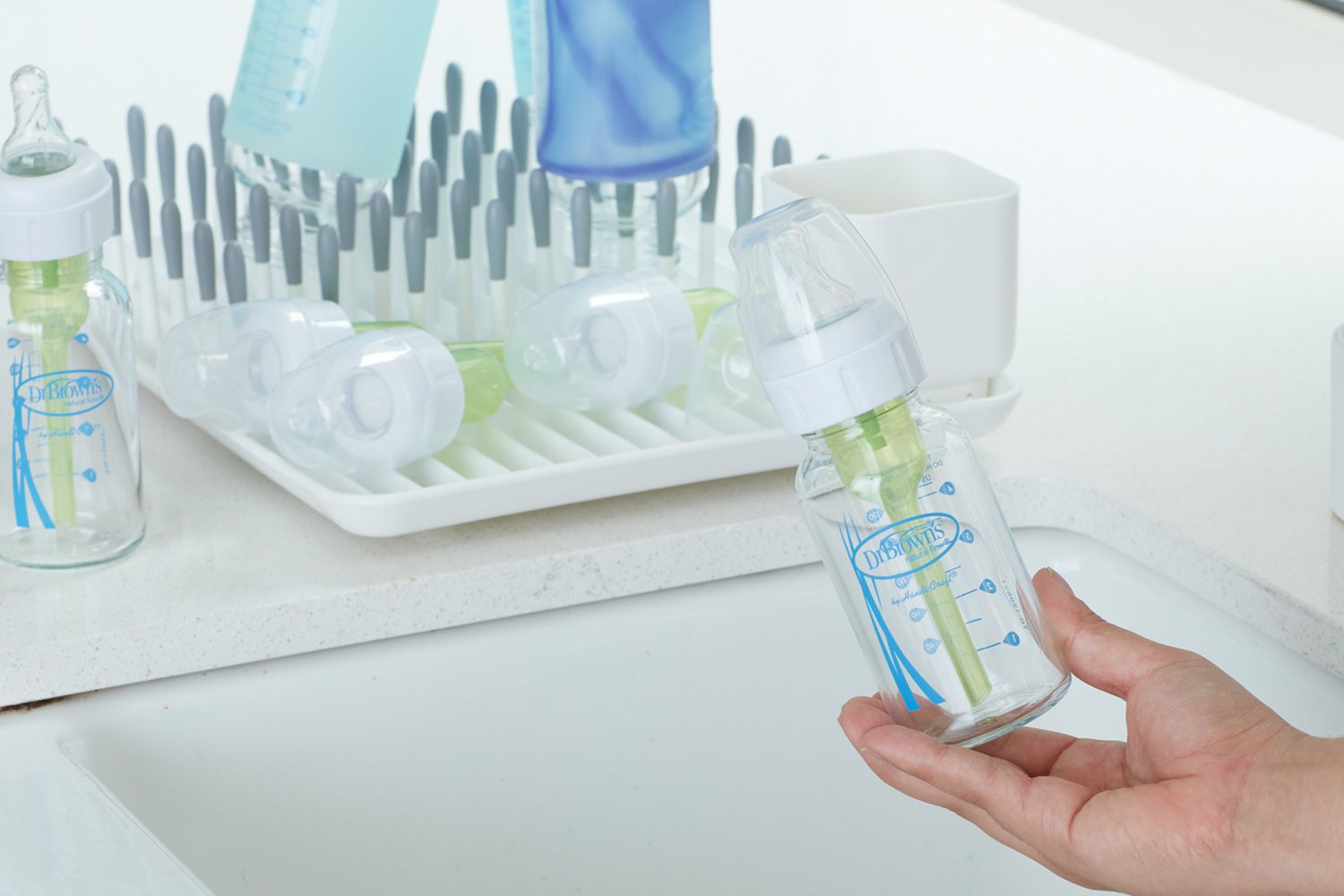
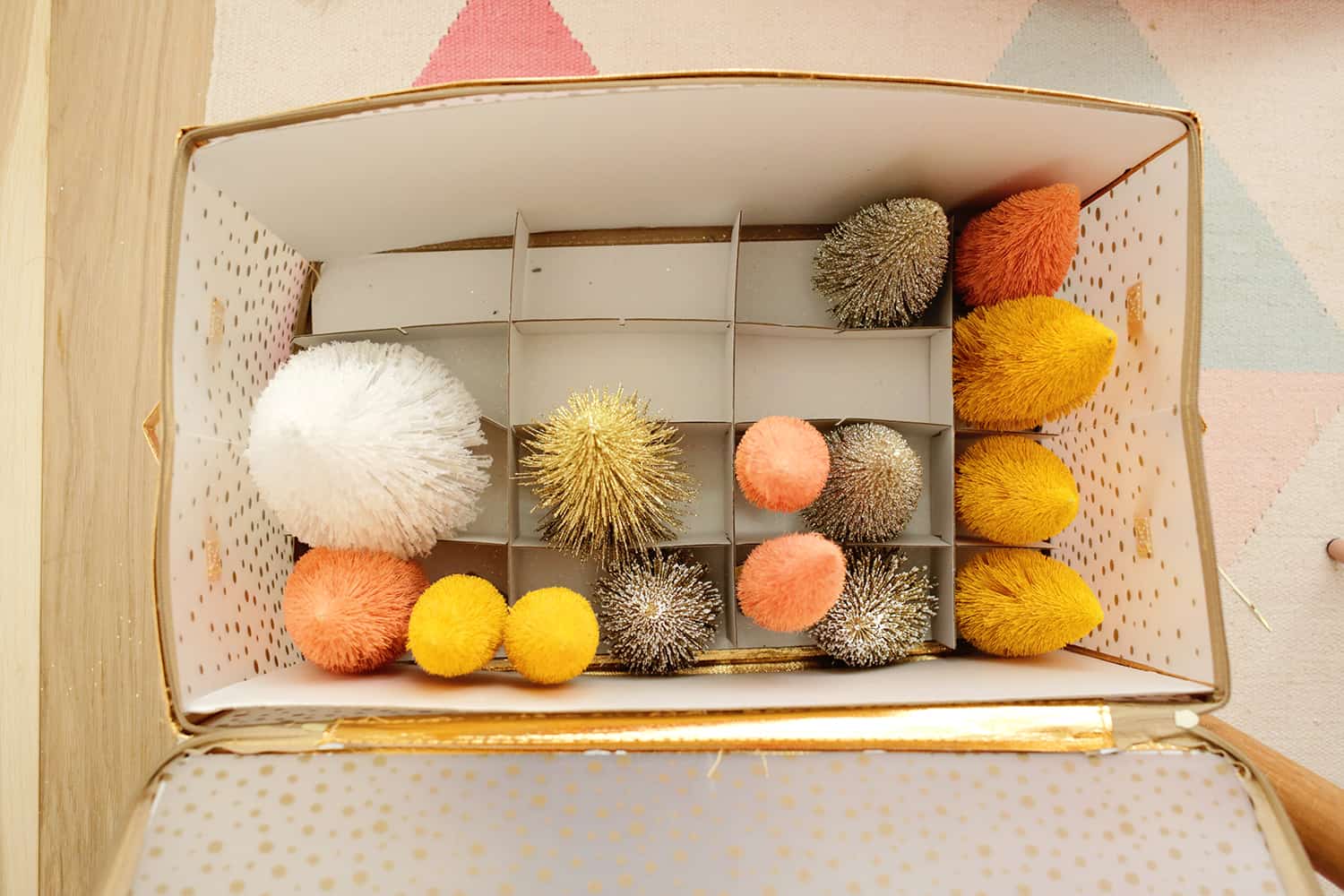

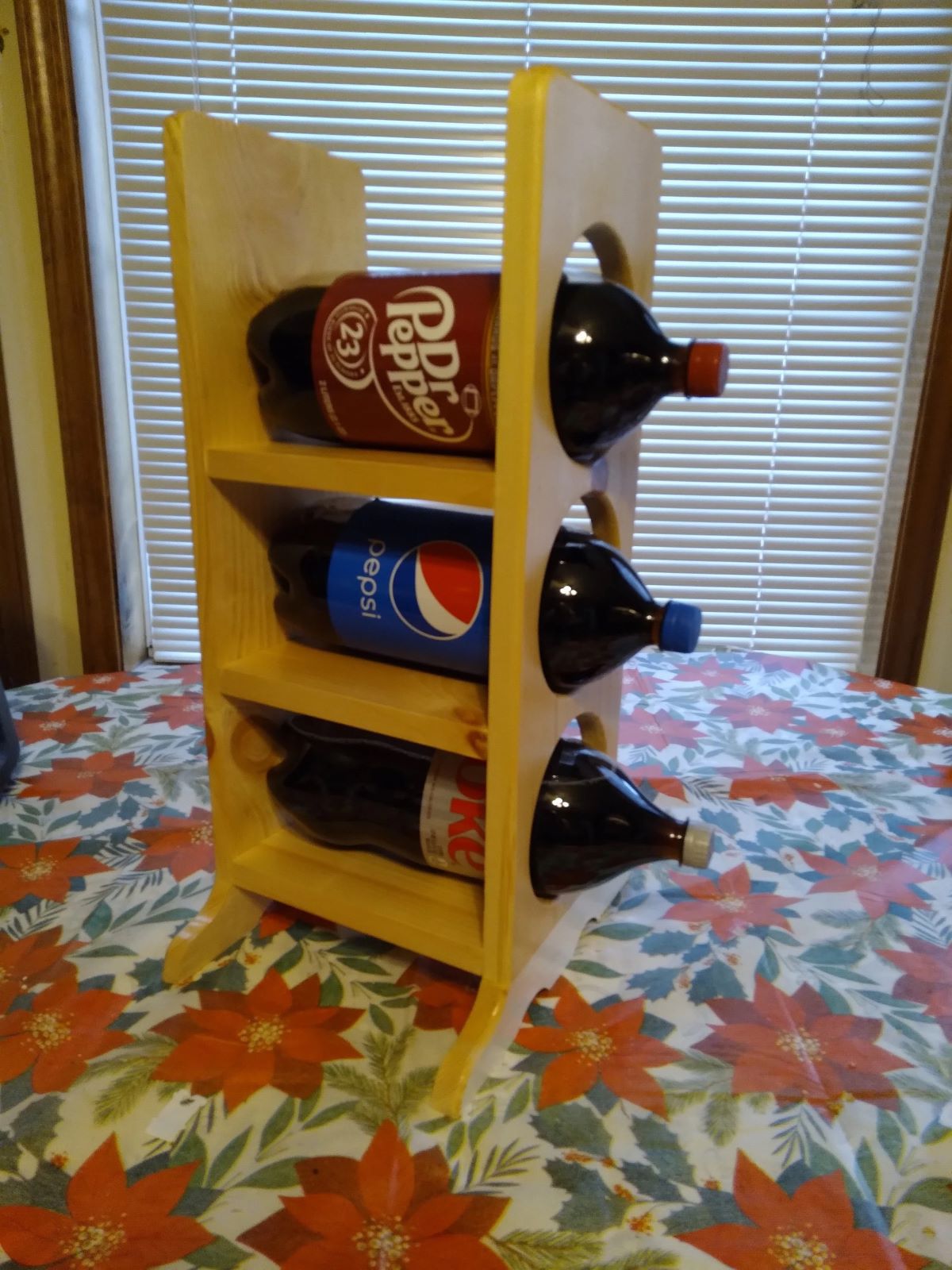
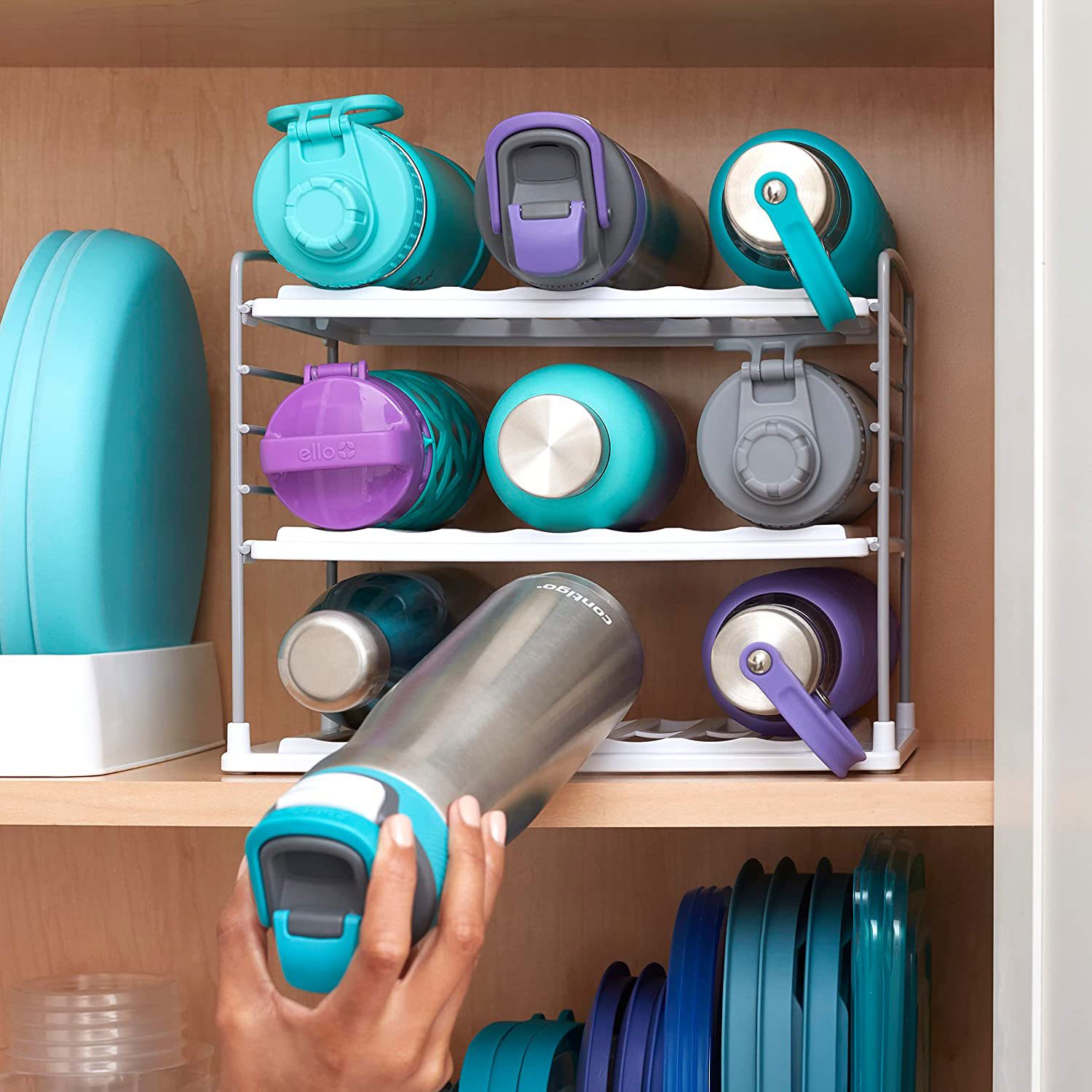

0 thoughts on “How To Store Medicine Bottles”